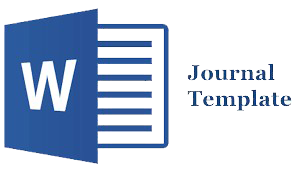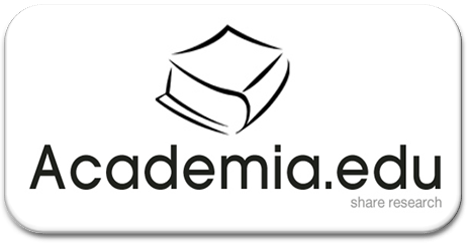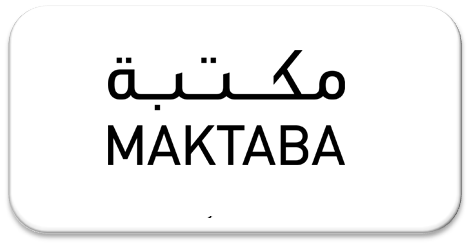- Focus and Scope
- Section Policies
- Peer Review Process
- Publication Frequency
- Open Access Policy
- Archiving
- Plagiarism Policy
- Article Processing Charge
- Publication Ethics
- Publication Frequency
Focus and Scope
Jurnal Solusi Masyarakat (JSM) is an open access, and peer-reviewed journal.
Focus
Our main goal is to share current and original articles from researchers and practitioners about new ideas and research findings in the field of service to the community. .
Scope:
- social and political issues concerning community service
- Training, marketing, technological accuracy, and design
- Community empowerment and social access
- Outskirts areas and undeveloped areas
- Education for sustainable development
Section Policies
Articles
Peer Review Process
Manuscripts submitted to Jurnal Solusi Masyarakat (JSM) will undergo a selection and assessment process by the Board of Editors to ensure their accordance with the writing guideline, focus, and scope, and that they are of excellent academic quality. The manuscripts will be reviewed using the double blind peer review method in which case neither authors nor reviewers know each other’s identities.
As soon as the review process is complete, the authors will be notified by email about acceptance or rejection contributing author for publication in the Poltekita: Jurnal Pengabdian Masyarakat. If the author is encouraged to re-submit the corrected article, any changes suggested to the script will be reviewed by the same expert reviewer and editor of the same section. Answers to comments must be clearly stated in the article and retransmission must be accompanied by a letter with a detailed response to reviewers' comments. the review process takes 2-4 week
Publication Frequency
Jurnal Solusi Masyarakat (JSM) publishes two times in a year i.e. January-June and July-December
Open Access Policy
This journal provides immediate open access to its content on the principle that making research freely available to the public supports a greater global exchange of knowledge.
Archiving
This journal utilizes the LOCKSS system to create a distributed archiving system among participating libraries and permits those libraries to create permanent archives of the journal for purposes of preservation and restoration. More...
Plagiarism Policy
To ensure the originality of the articles, Jurnal Solusi Masyarakat (JSM) uses TURNITIN. Plagiarism check is conducted in the screening process of the submitted manuscripts. Only plagiarism-free manuscripts are sent to assigned editor(s) to be followed up with the review process. Submissions with minor plagiarism issues will be notified to revise and resubmit, while manuscript with serious plagiarism issues will be rejected and archived.
Article Processing Charge
Jurnal Solusi Masyarakat (JSM) DOES NOT CHARGE fees for any submission, article processing (APCs), and publication of the selected reviewed manuscripts. Journal subscription is also open to any individual without any subscription charges. All published manuscripts will be available for viewing and download from the journal portal for free.
Publication Ethics
This statement clarifies ethical behaviour of all parties involved in the act of publishing an article in this journal, including the author, the chief editor, the Editorial Board, the peer-reviewer and the publisher. This statement is based on COPE’s Best Practice Guidelines for Journal Editors.
Ethical Guideline for Journal Publication
The publication of an article in a peer-reviewed is an essential building block in the development of a coherent and respected network of knowledge. It is a direct reflection of the quality of the work of the authors and the institutions that support them. Peer-reviewed articles support and embody the scientific method. It is therefore important to agree upon standards of expected ethical behavior for all parties involved in the act of publishing: the author, the journal editor, the peer reviewer, the publisher, and the society.
Journal publisher takes its duties of guardianship over all stages of publishing seriously and we recognize our ethical and other responsibilities. We are committed to ensuring that advertising, reprint or other commercial revenue has no impact or influence on editorial decisions. And Editorial Board will assist in communications with other journals and/or publishers where this is useful and necessary.
Publication decisions
The editor is responsible for deciding which of the articles submitted to the journal should be published. The validation of the work in question and its importance to researchers and readers must always drive such decisions. The editors may be guided by the policies of the journal's editorial board and constrained by such legal requirements as shall then be in force regarding libel, copyright infringement and plagiarism. The editors may confer with other editors or reviewers in making this decision.
Fair play
An editor at any time evaluate manuscripts for their intellectual content without regard to race, gender, sexual orientation, religious belief, ethnic origin, citizenship, or political philosophy of the authors.
Confidentiality
The editor and any editorial staff must not disclose any information about a submitted manuscript to anyone other than the corresponding author, reviewers, potential reviewers, other editorial advisers, and the publisher, as appropriate.
Disclosure and conflicts of interest
Unpublished materials disclosed in a submitted manuscript must not be used in an editor's own research without the express written consent of the author.
Duties of Reviewers
Contribution to Editorial Decisions
Peer review assists the editor in making editorial decisions and through the editorial communications with the author may also assist the author in improving the paper.
Promptness
Any selected referee who feels unqualified to review the research reported in a manuscript or knows that its prompt review will be impossible should notify the editor and excuse himself from the review process.
Confidentiality
Any manuscripts received for review must be treated as confidential documents. They must not be shown to or discussed with others except as authorized by the editor.
Standards of Objectivity
Reviews should be conducted objectively. Personal criticism of the author is inappropriate. Referees should express their views clearly with supporting arguments.
Acknowledgment of Sources
Reviewers should identify relevant published work that has not been cited by the authors. Any statement that an observation, derivation, or argument had been previously reported should be accompanied by the relevant citation. A reviewer should also call to the editor's attention any similarity or overlap between the manuscript under consideration and any other published paper of which they have personal knowledge.
Disclosure and Conflict of Interest
Privileged information or ideas obtained through peer review must be kept confidential and not used for personal advantage. Reviewers should not consider manuscripts in which they have conflicts of interest resulting from competitive, collaborative, or other relationships or connections with any of the authors, companies, or institutions connected to the papers.
Duties of Authors
Reporting standards
Authors of reports of original research should present an accurate account of the work performed as well as an objective discussion of its significance. Underlying data should be represented accurately in the paper. A paper should contain sufficient detail and references to permit others to replicate the work. Fraudulent or knowingly inaccurate statements constitute unethical behaviour and are unacceptable.
Originality and Plagiarism
The authors should ensure that they have written entirely original works, and if the authors have used the work and/or words of others that this has been appropriately cited or quoted.
Multiple, Redundant or Concurrent Publication
An author should not in general publish manuscripts describing essentially the same research in more than one journal or primary publication. Submitting the same manuscript to more than one journal concurrently constitutes unethical publishing behaviour and is unacceptable.
Acknowledgement of Sources
Proper acknowledgment of the work of others must always be given. Authors should cite publications that have been influential in determining the nature of the reported work.
Authorship of the Paper
Authorship should be limited to those who have made a significant contribution to the conception, design, execution, or interpretation of the reported study. All those who have made significant contributions should be listed as co-authors. Where there are others who have participated in certain substantive aspects of the research project, they should be acknowledged or listed as contributors. The corresponding author should ensure that all appropriate co-authors and no inappropriate co-authors are included on the paper, and that all co-authors have seen and approved the final version of the paper and have agreed to its submission for publication.
Disclosure and Conflicts of Interest
All authors should disclose in their manuscript any financial or other substantive conflict of interest that might be construed to influence the results or interpretation of their manuscript. All sources of financial support for the project should be disclosed.
Fundamental errors in published works
When an author discovers a significant error or inaccuracy in his/her own published work, it is the author’s obligation to promptly notify the journal editor or publisher and cooperate with the editor to retract or correct the paper
Publication Frequency
Jurnal Solusi Masyarakat (JSM) publishes two times in a year i.e. January-June and July-December.



1.png)
_(1).png)
.png)



.png)









